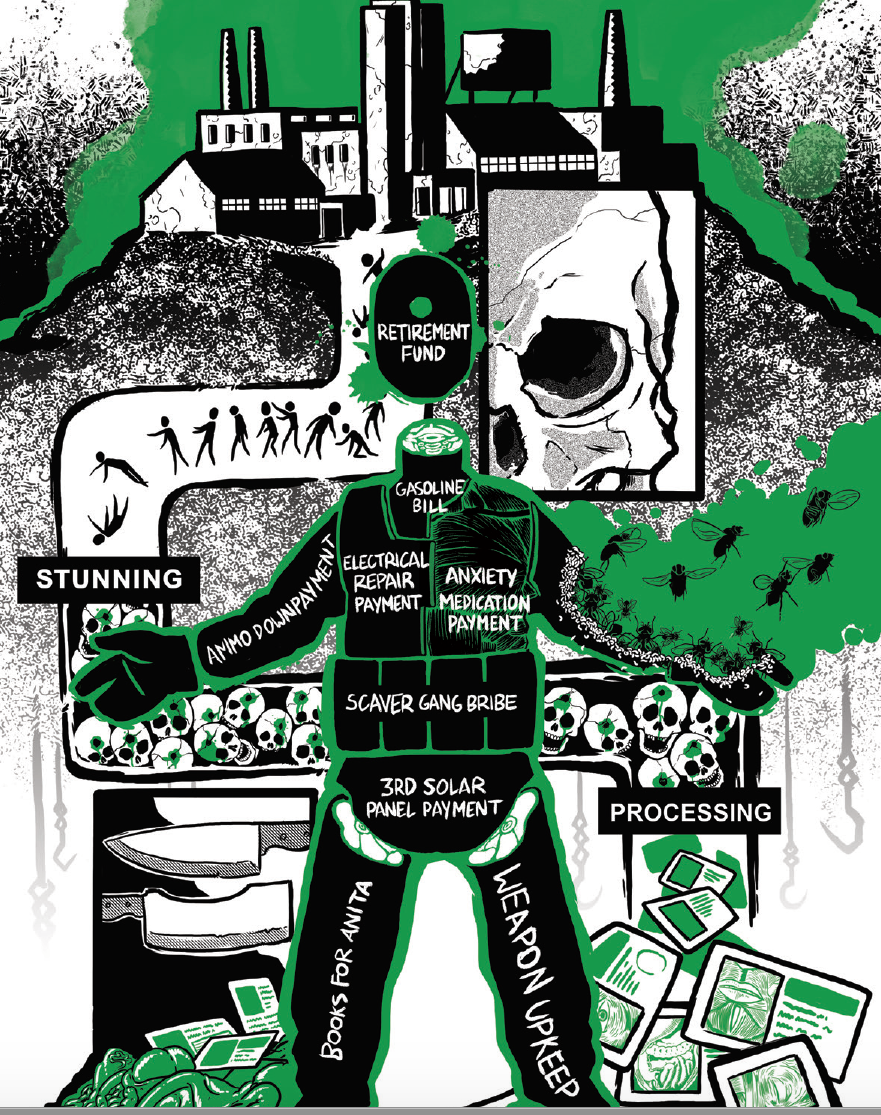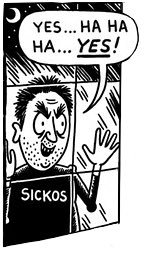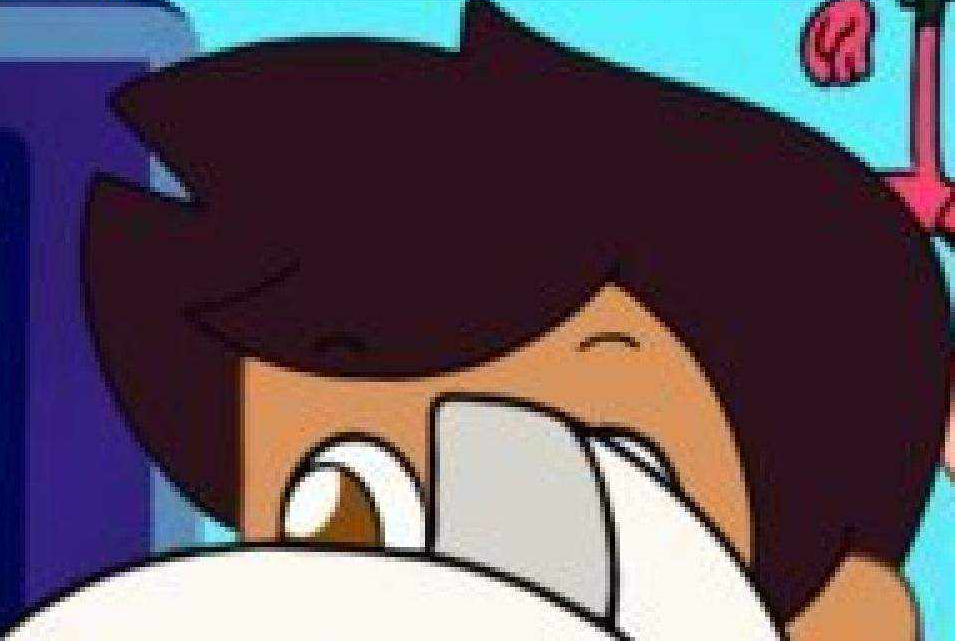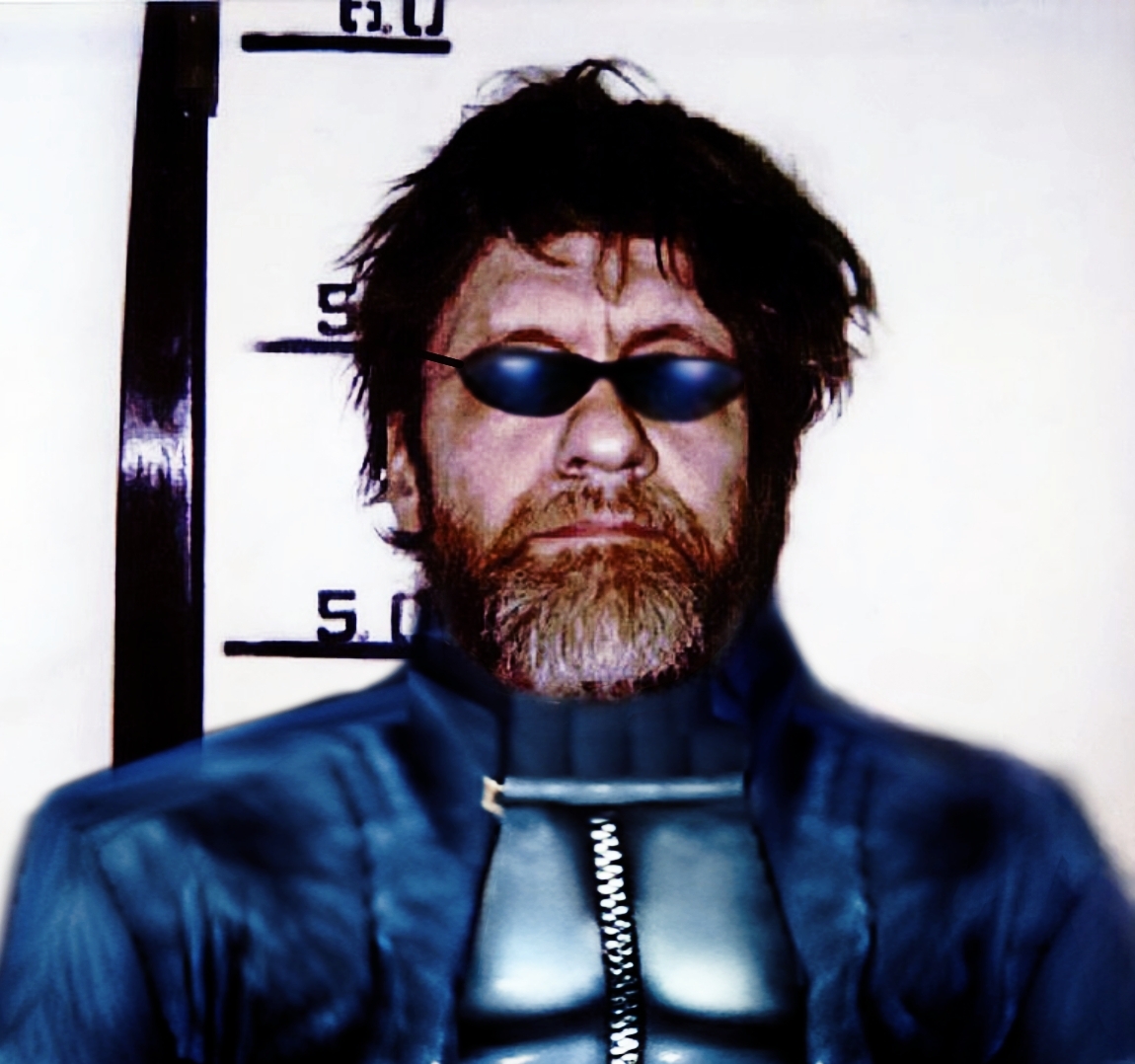The environment is being destroyed, super corporations run society, and we are all fat and too busy being distracted by screens to care
i wonder what life was like for those who didnt make it on board the Axiom
If it's any consolation, you won't have to wonder for much longer.
True but since the movie is made by one of those super corporations, we don't get a useful ending like "smash the system and rebuild it", but rather some gooey "personal responsibility go outside and eat a salad" garbage.
That's not really an accurate take. They turned off the autopilot controlling everything (the system), returned to Earth, and rebuilt society together in what is implied by the credits to be a fairly mutualistic form.
Mark Fisher used Wall-E a couple times in Capitalist Realism (pasting more for context):
For Lacan, the Real is what any ‘reality’ must suppress; indeed, reality constitutes itself through just this repression. The Real is an unrepresentable X, a traumatic void that can only be glimpsed in the fractures and inconsistencies in the field of apparent reality. So one strategy against capitalist realism could involve invoking the Real(s) underlying the reality that capitalism presents to us.
Environmental catastrophe is one such Real. At one level, to be sure, it might look as if Green issues are very far from being ‘unrepresentable voids’ for capitalist culture. Climate change and the threat of resource-depletion are not being repressed so much as incorporated into advertising and marketing. What this treatment of environmental catastrophe illustrates is the fantasy structure on which capitalist realism depends: a presupposition that resources are infinite, that the earth itself is merely a husk which capital can at a certain point slough off like a used skin, and that any problem can be solved by the market (In the end, Wall-E presents a version of this fantasy – the idea that the infinite expansion of capital is possible, that capital can proliferate without labor – on the off world ship, Axiom, all labor is performed by robots; that the burning up of Earth’s resources is only a temporary glitch, and that, after a suitable period of recovery, capital can terraform the planet and recolonize it). Yet environmental catastrophe features in late capitalist culture only as a kind of simulacra, its real implications for capitalism too traumatic to be assimilated into the system. The significance of Green critiques is that they suggest that, far from being the only viable political-economic system, capitalism is in fact primed to destroy the entire human environment. The relationship between capitalism and eco-disaster is neither coincidental nor accidental: capital’s ‘need of a constantly expanding market’, its ‘growth fetish’, mean that capitalism is by its very nature opposed to any notion of sustainability.
By this analysis Wall-E is reaching levels of Dystopia not previously thought possible.
Also this is how he introduces the movie:
Time after time, the villain in Hollywood films will turn out to be the ‘evil corporation’. Far from undermining capitalist realism, this gestural anti-capitalism actually reinforces it. Take Disney/ Pixar’s Wall-E (2008). The film shows an earth so despoiled that human beings are no longer capable of inhabiting it. We’re left in no doubt that consumer capitalism and corporations – or rather one mega-corporation, Buy n Large – is responsible for this depredation; and when we see eventually see the human beings in offworld exile, they are infantile and obese, interacting via screen interfaces, carried around in large motorized chairs, and supping indeterminate slop from cups. What we have here is a vision of control and communication much as Jean Baudrillard understood it, in which subjugation no longer takes the form of a subordination to an extrinsic spectacle, but rather invites us to interact and participate. It seems that the cinema audience is itself the object of this satire, which prompted some right wing observers to recoil in disgust, condemning Disney/Pixar for attacking its own audience. But this kind of irony feeds rather than challenges capitalist realism. A film like Wall-E exemplifies what Robert Pfaller has called ‘interpassivity’: the film performs our anti-capitalism for us, allowing us to continue to consume with impunity.
"They'll take your anti-capitalism and sell it back to you" is voiced in my head often.
Brave Little Toaster is more accurate.
No, I will not elaborate.
Humanity bad a (granted kind of nutty) backup plan and survived. It's actually a utopian version of the world we're living in.
Except 99.9% of the human race was clearly left behind on an uninhabitable Earth.
You're forgetting the billions of workers in the global periphery whose labor creates all this crap and who live nothing like the people in Wall-E.





